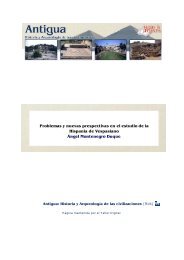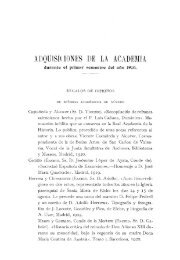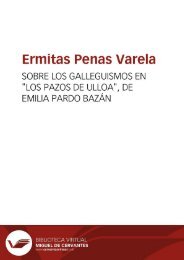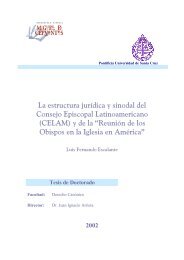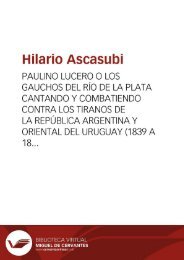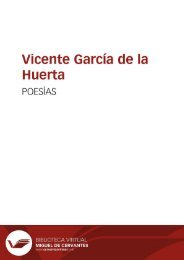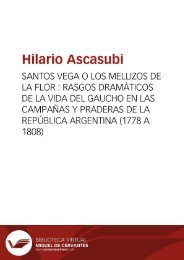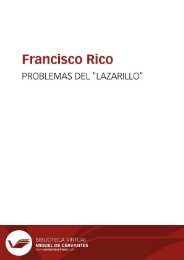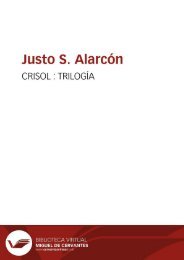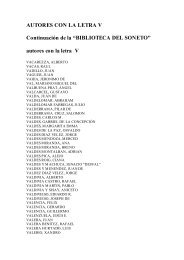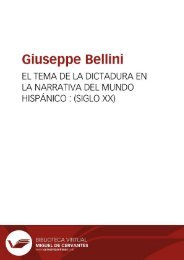Create successful ePaper yourself
Turn your PDF publications into a flip-book with our unique Google optimized e-Paper software.
Anales galdosianos [Publicaciones periódicas]. Año XII, 1977<br />
of society is posed as a transformation from within in Ángel Guerra it is based on a total rejection<br />
of the established order.<br />
Ángel Guerra is born in Madrid, the son of a family of the haute bourgeoisie , and he is educated<br />
according to the customs of that class. He does not, however, accept the role which society would<br />
have him play and becomes an «outsider» to the extent that he is an outspoken opponent of bourgeois<br />
values. Nevertheless, unlike Fortunata, Ángel's separation has a psychological rather than historical<br />
base. That is, he does not discover the fraudulence and hypocrisy of the bourgeois norm by testing<br />
it against his own historically conditioned values, but rather his rejection of that norm is linked to<br />
his effort to break away from a domineering mother; his struggle for independence from a restrictive<br />
social norm goes along with his need to achieve independence from a restrictive family environment.<br />
For example, he finds his revolutionary fervor to be the result of an ongoing conflict with his mother:<br />
« Culpa más bien a tu carácter absorbente y despótico [he supposes he is talking to his mother], que<br />
no admite ni la desobediencia más leve, ni la réplica, ni siquiera la opinión de los demás. Encontreme<br />
atado con mil lazos, algunos legítimos, otros no; quise romper los que me oprimían, y tirando, tirando,<br />
se rompieron todos. Soy revolucionario por el odio que tomé al medio en que me criaste y a las<br />
infinitas trabas que poner querías a mi pensamiento » (1251) 222 . When Ángel leaves home he<br />
separates himself temporarily from both his family and his class, but, as this passage indicates, this<br />
separation represents the culmination of the mother-son conflict. His rebellion, in spite of its initial<br />
revolutionary appearance, can be described better in terms of the generation gap than in those of the<br />
class struggle. 223<br />
222 All references to Ángel Guerra will be to volume V of the Sainz de Robles edition of the Obras<br />
completas (cited above). In this quotation that edition gives « Culpa más bien a su carácter », which<br />
I have corrected according to the first edition.<br />
223 In a discussion of the possible role which students might play in the revolution, Trotsky made a<br />
comment that I find particularly applicable to Ángel Guerra: «The fact it that very often radicalism<br />
is a sickness of youth among what are actually petty-bourgeois students... You find this radicalism<br />
among youth in every country. The young person always feels dissatisfied with the society he lives<br />
in-he always thinks he can do things better than his elders did... Here we have the real psychological<br />
motor force. The young feel shut out; the old take up all the space, and the young can't find any outlet<br />
for their abilities. They are dissatisfied quite simply because they themselves are not sitting in the<br />
164




